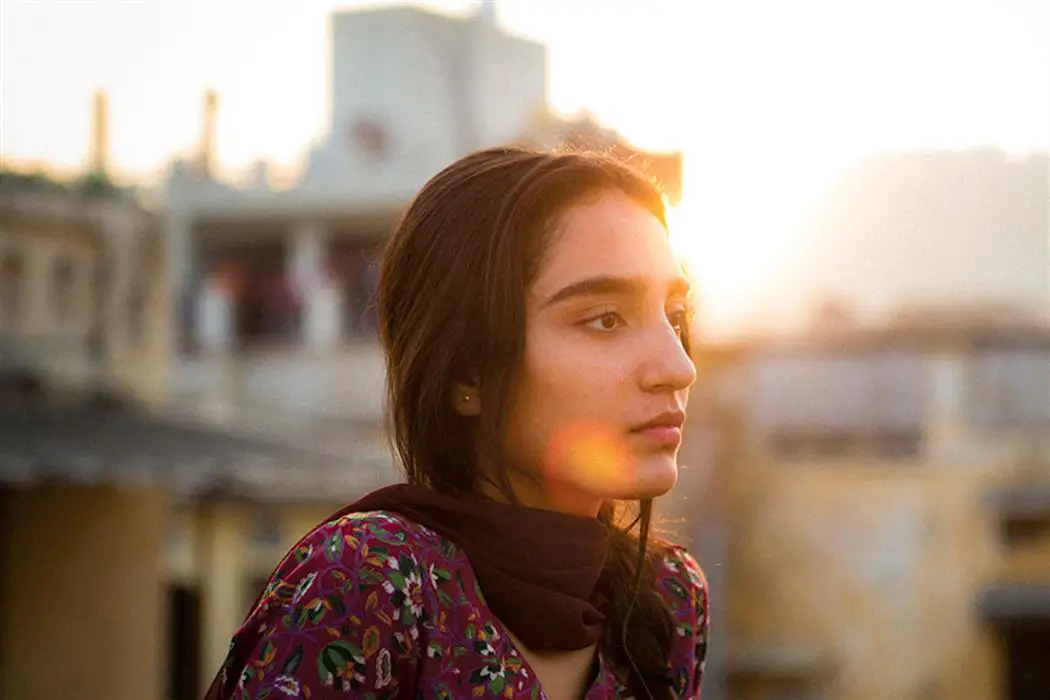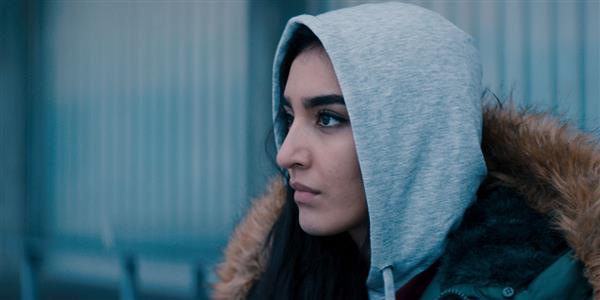WHAT WILL PEOPLE SAY: Caught In A Cultural Crossfire (#TIFF)

Tomas is a chronic cineaste who studied English literature in…
This review is part of Film Inquiry’s ongoing coverage of the Toronto International Film Festival. The film was viewed before the festival commenced.
When this film ended, I must admit, I had to take a little walk and clear my head. So many images were unremittingly flickering through my mind, all of them surrounding the film’s central character and the trials she endured simply because she was raised in a culture that was unsuited to her temperament. I would venture to call this a horror film, because it shook me as much as (if not more than) anything supernatural ever could. The terrors here are very much real, and for all we know, could be happening all around us.
I’ve read books that deal with women suffering in extremely patriarchal societies, where they must live in silent subservience and propriety. Such societies stifle their free will, negate their natural desires, and ultimately force them to live an existence that is dauntingly oppressive, else they wish to suffer grave consequences.
To see it play out onscreen is sobering—nay, gut-wrenching. And Iram Haq does not soften her blows, either. She certainly could have, but it would not have resulted in anything as remotely impactful as What Will People Say is.
A Liminal Womanhood
What Will People Say revolves around Nisha (Maria Mozhdah), a Norwegian teen raised by Pakistani immigrants who tiptoes the fine line between these two worlds. By day she is the ever-dutiful daughter; by night, she slips away and parties with her friends, sneaking back quietly so that her parents think nothing is amiss. Her plan manages to work without a hitch until one night she lets her redheaded boyfriend climb through her bedroom window for a make-out session. Her stern father, Mirza (Adil Hussain), catches them in the act, and gives the boy a violent thrashing.
Nisha’s indiscretion shrouds the family in a veil of disgrace, and Mirza’s friends urge him to make an example out of her in order to prevent her from influencing their own children. His plan is a sickening one: to kidnap her against her will and bring her to live with his sister’s family in Pakistan. With her brother also helping to execute the plan, Nisha is unable to escape or call for help, and eventually finds herself on foreign soil, forced to live a brand new life that she neither wants nor believes in.

Being kidnapped is hardly the most serious thing that happens to the poor girl, however, and as already mentioned, Haq makes no attempts to sanitize her traumas. In fact, there is such an adamant determination to catalogue every detail of Nisha’s victimhood that the film wavers on the border of heavy-handedness, bluntly forcing viewers to endure the brunt of these unseemly events without being given the opportunity to think for themselves.
The Human Touch for Human Struggles
Normally I dislike this kind of didactic filmmaking, but here I cannot see how one would side with Nisha’s family anyway. It is clear from the beginning that Nisha’s social world is her safety net; it is something that gives her happiness and fulfillment, and having it taken away more than fits the designation of cruel and unusual punishment. Nothing that Nisha’s family says or does justifies this, and the pained expressions on Mozhdah’s face are enough to speak volumes.

But Nisha’s family are not two-bit monsters, either. This is especially true of Mirza, who is not completely convinced that his cultural customs are always in the right. Hussain beautifully sets this inner turmoil in motion so that, by the time What Will People Say ends, his stance becomes much more ambiguous than it previously was.
The complexity of his character not only humanizes him, but it also prevents the film from devolving into oversimplification. We know which side we’re supposed to be on, yet the other side is not underwritten, either. Thus, we can be suitably horrified by what transpires without feeling backed into a corner.
What Will People Say: Conclusion
I’m writing this review a few days before What Will People Say premieres at TIFF, so I do not know how it will be received by general audiences there. If I can take a wild guess, I’d venture to say that it will have a lot of people talking. Many will be repulsed by what transpires, and many others will cry in the face of Nisha’s trials. There will be anger and compassion, bewilderment and frustration. It’s not a film to take lightly, nor one that takes the easy ways out.
I hope audiences do recognize its power, though. I hope they appreciate Haq’s good eye for framing scenes, as well as the fantastic acting from its large ensemble. I would hate to see this work swept under the rug, and my hope is that enthusiastic word-of-mouth will give it the large viewership it deserves. It has certainly earned it.
What is your favorite film about a character coming-of-age in a different culture other than your own? Let us know in the comments below!
What Will People Say premiered in the Platform programme of the Toronto International Film Festival on September 9th. Future release dates are unknown at this time.
Does content like this matter to you?
Become a Member and support film journalism. Unlock access to all of Film Inquiry`s great articles. Join a community of like-minded readers who are passionate about cinema - get access to our private members Network, give back to independent filmmakers, and more.
Tomas is a chronic cineaste who studied English literature in university (in both the undergraduate and graduate levels), and hopes to pursue a career in writing. His passion for film began in earnest at the beginning of the 2010s, and since then he's been reveling at the vast horizons of the cinematic landscape like a kid at the proverbial candy store.












